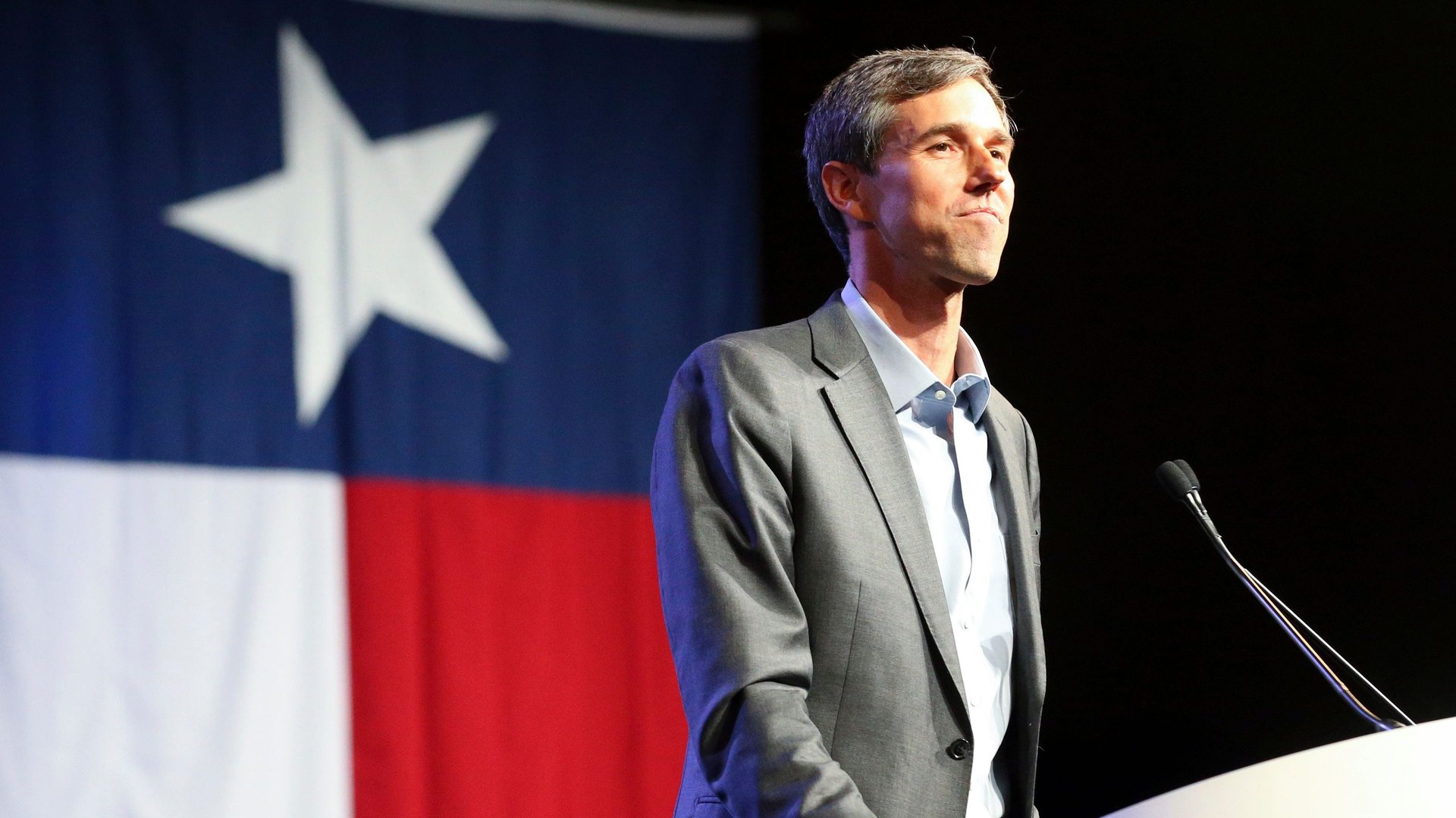Beto has a good chance of beating Trump in Texas in 2020
Beto O’Rourke, the former US congressman who almost won a Senate seat last year representing Texas, is now vying for the White House. The native of El Paso, Texas is expected to announce soon whether he’s jumping into the 2020 presidential race.


Beto O’Rourke, the former US congressman who almost won a Senate seat last year representing Texas, is now vying for the White House. The native of El Paso, Texas is expected to announce soon whether he’s jumping into the 2020 presidential race.
Polls show he has a pretty good chance of beating Donald Trump, at least in his home state, where he’s polling one percentage point behind the president, according to a new Quinnipiac survey.
Such close odds in deeply Republican Texas vouch for the excitement O’Rourke generated during his campaign against senator Ted Cruz last year. They’re also a sign of Trump’s sagging popularity. Even self-avowed socialist Bernie Sanders would give Trump a run for his money in the Lone Star state, based on the poll, which was conducted last month.
What about the rest of the country?
To be sure, O’Rourke is not as well known elsewhere in the US. Though he’s sat with several late-night hosts, and was interviewed by Oprah Winfrey, he’s trailing behind other Democratic candidates, both potential and announced.
In California, for example, Democrats prefer Joe Biden and Kamala Harris by large margins, according to a Quinnipiac poll taken earlier this year in that state.
Turning Texas blue
During his run against Cruz, O’Rourke showed he can garner out-of-state attention, raising millions from non-Texas donors.
He also shifted the long-held notion that Texas, and its wealth of Electoral College votes, was a lost cause for Democrats. O’Rourke fell to Cruz by less than three percentage points, a rarity in a state where no Democrat has been elected to statewide office for more than two decades.
O’Rourke was able to narrow the gap, in part, by getting traditional non-voters to the polls, including young people and minorities. The Texas Quinnipiac results shed light on where support for O’Rourke stands today, and where he would need to do more work.
Of course, it’s early days in the campaigns, and Texans—and the broader American public—have plenty of time to change their minds.